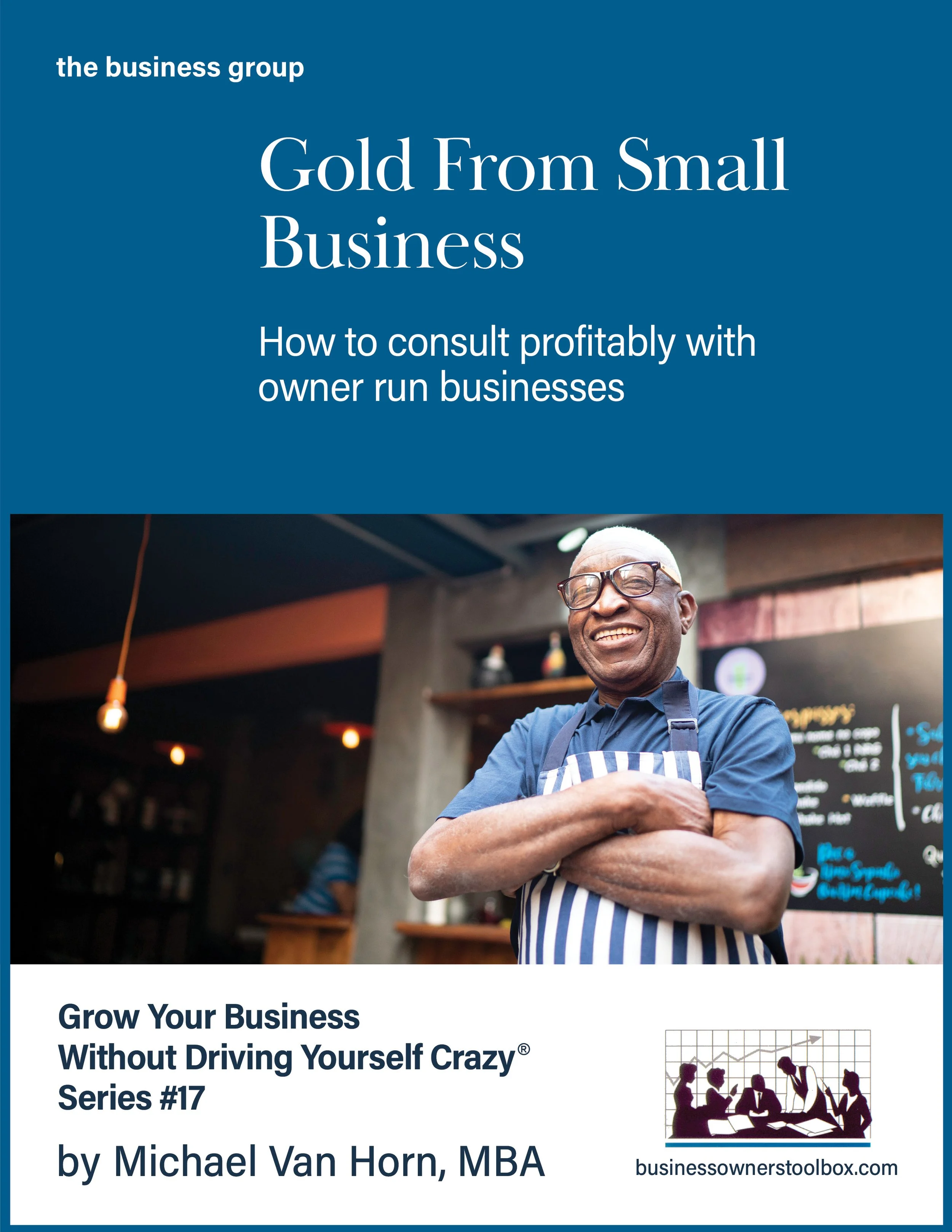Gold from Small Business
How to consult profitably with owner-run businesses
Michael Van Horn
#17 in the series
Most consultants do not work with top corporate executives, so this book shows you how to build a successful and lucrative practice working with owners of smaller companies--ranging from a few to a couple of hundred employees.
There are two benefits of working with smaller companies. Since there are many more of them:
• You’re less likely to be dependent on just a couple of large corporate projects at a time, so you avoid the boom-and-bust syndrome
• You reduce your business travel, and spend less time alone in airports and hotels.
Following my guidelines, you can make the money you want while working on diverse and enjoyable projects—without exhausting travel and a 24/7 schedule.
I'll tell you what sets small business owners apart from corporate managers and execs, the opportunities for consultants, and how to take advantage of them, plus the challenges and how to deal with them.
This is based on my work with these business owners for over thirty years.
This book includes
The mindset and tools you need to consult profitably with smaller, owner-run companies
How to overcome the inevitable challenges
Proven ways to find, qualify, and sell to small businesses
Special ways of working with smaller clients profitably
Topics covered
- The mind and heart of the small business owner
- Varieties of owner-run businesses . . . compared to corporate execs
- Benefits of consulting with small business owners (SBOs)
- Challenges of consulting with smaller companies
- How to find SBOs
- How to sell to SBOs
- Working with SBOs. Their needs = your opportunity
- Profile of small business consultant
- How to price your services
- Ways to boost your effective hourly rate
This is also useful for executive coaches who wish to become better business advisors.
Warm up exercise
From the workbook
Where is your comfort zone working with small business?
Small business owner compared to corporate exec. Which of these have you encountered?
Much more invested in the company. Heart and soul. Years of savings and sweat equity
Less management training. They went into business to pursue a passion or opportunity, then found out they must learn to be a manager to make a go of it.
No “budget” for hiring consultants
Broader span of management, more gaps in management structure
Fewer in-house resources; e.g., specialists on staff, IT, admin support. Yet needs them just as much. Also, less experienced at selecting them and coordinating their actions
Fewer formal systems and controls and consistent procedures. Growing companies often outgrow their systems.
Less concern about the political infighting. Doesn’t mean it’s non-existent.
Faster decision making. Nimbleness, flexibility. This is largely responsible for their success.
Built the business around his/her life rather than vice versa. They love their business, but still wish they didn’t have to work so many hours.
Built the business around a passion. But sometimes they get stuck in the head-down, day-to-day grind and forget about this
